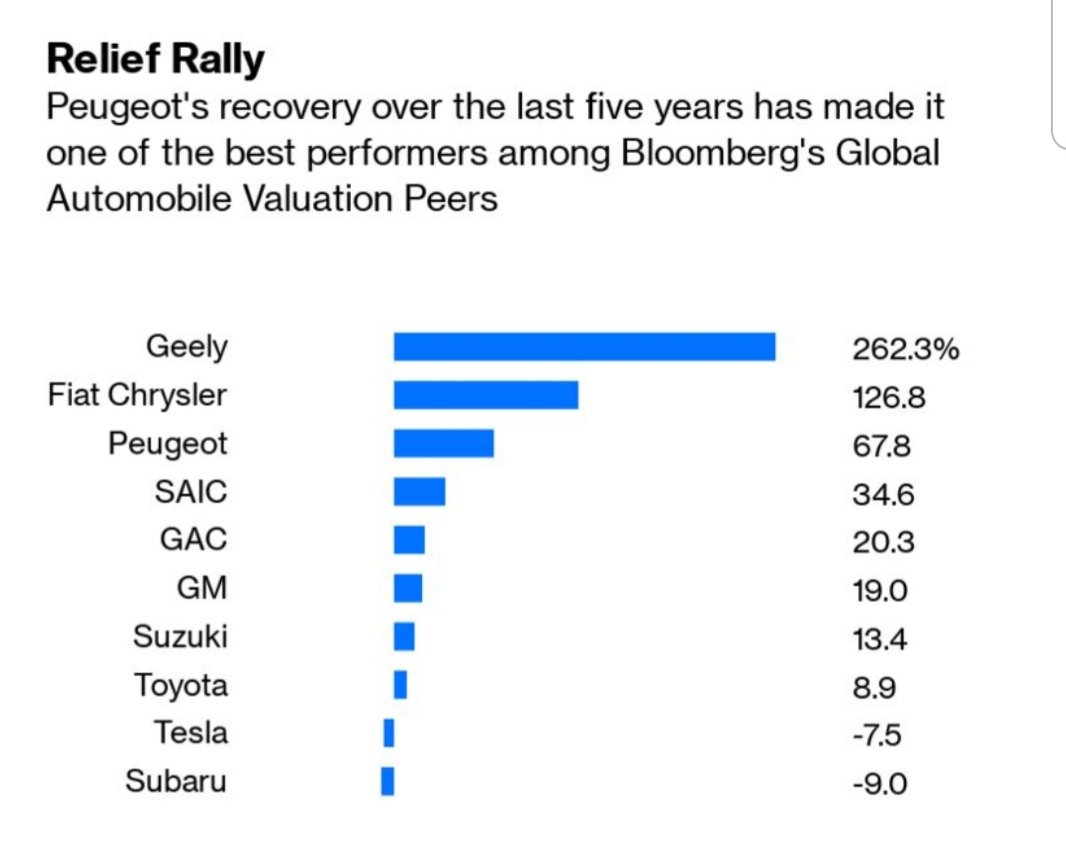Peugeot-Citroen's love affair with China could be coming to an end -- or could be preparing for a new dawn. (thread) bloomberg.com/amp/opinion/ar…
Per this scoop from Bloomberg today, Dongfeng motor is considering selling its 12% stake in PSA Group, maker of Peugeot and Citroen.
bloomberg.com/news/articles/…
bloomberg.com/news/articles/…
This will make a great trading profit. They bought it for €800m as part of a 2014 bailout brokered by the French government. It's now worth €2.2bn. PSA is the third-best performing auto stock globally over the past 5 years. 

Problem is, in other ways the alliance is a mess. Dongfeng is for the most part a sort of contract manufacturer for foreign carmakers and has JVs with PSA, Nissan and Honda.
The PSA one is really struggling and has been losing money, in contrast to the others' handsome profits:
The PSA one is really struggling and has been losing money, in contrast to the others' handsome profits:

If anything it looks worse now than in those 2018 numbers. First-half sales were down by half from a year earlier, so unless things recover in the second half they'll do well to sell many more than 150,000 cars. 

That will leave factories that were losing money at ~50% urilization last year running at about ~25% utilization. Hard to make a profit in that situation.
Meanwhile Dongfeng has a lot of net debt, at about 8x Ebitda, and is making operating losses. So something has to give.
Meanwhile Dongfeng has a lot of net debt, at about 8x Ebitda, and is making operating losses. So something has to give.
One idea would be to have PSA take control of the JV. It's clearly struggling under Dongfeng but it's hard to believe PSA wants to give up on China altogether. BMW did this with its Brilliance JV last year.
If so we're going to be seeing an increasing de-indigenization of the Chinese car industry by European carmakers.
Given what a flashpoint it's been in trade war debates, that will be an interesting development. (ends)
Given what a flashpoint it's been in trade war debates, that will be an interesting development. (ends)
• • •
Missing some Tweet in this thread? You can try to
force a refresh








